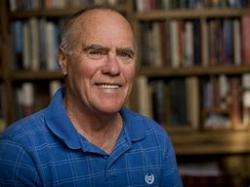I witnessed it in high school wrestling.
High school folkstyle wrestling in North Carolina is not popular. But participants and their fans still share an almost religious dedication to and appreciation of the sport.
This past weekend was sandwiched between two high school dual meets. Both meets revealed more than what you typically expect, things like good sportsmanship, fantastic fans, and the athletic skill of the wrestlers gained through hard physical and mental work. They also revealed community as a verb.
On a January Friday night, I drove to the high school from which I graduated in 1964. The wrestling team of the town where I now live competed there, and I met two high school teammates to watch the meet. The school athletic director met and gave us a pre- and post-match tour of the athletic facilities. While showing us the impressive weight room, the athletic director told me he had originally been hired as a teacher/coach by one of my teammates with me that night.
That was only the beginning because all through the dual meet and afterward, people would approach the same white-haired fellow and shake his hand, often hugging him and energetically talking. All the accolades I heard about him that night showed how highly respected he still was for his years as a teacher, administrator, and coach. I witnessed a community acting as a verb to commend one of its own.
The following Monday’s match was at my hometown school against its big rival, and it was also senior night. The rivalry, like so many between two nearby schools, is intense, so I wanted to attend. The school pep band played before the match began, a long-time teacher/coach of the school was recognized for twenty years of service, and a student group (like Make-A-Wish Foundation) made a presentation to a youngster with special needs. Finally, the seniors with their parents were introduced. Just like on Friday night, I witnessed the community acting as a verb to applaud its own.
Participation, not success, is essential for all youngsters. Yes, winning a chess tournament, swim meet, cross-country race or band competition is nice. Still, when we encourage (require?) participation outside the classroom for our students, we open other opportunities for “community.”
While winning is desired, it becomes secondary to being part of something larger than self.
In the classroom, students compete against each other for grades, but in those (to use my time period’s name for them, extra-curricular activities), students learn what it means to be depended upon by others. Suddenly the adage, “A chain is only as strong as its weakest link,” carries new weight, and a sense of community (team) as a noun is born.
What I witnessed both nights was community as a verb. It shows what we can accomplish when we come together to celebrate achievements–not necessarily as big wins–but as reflections of our character.
















